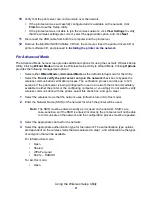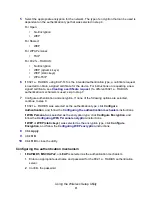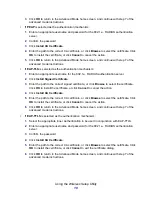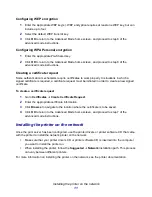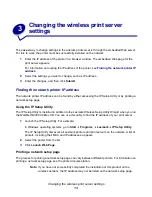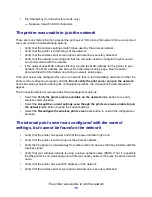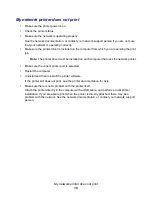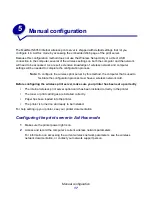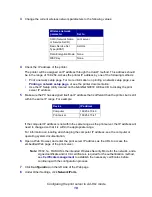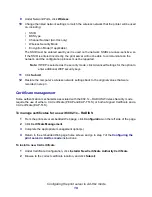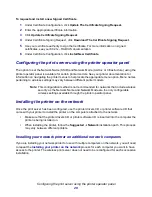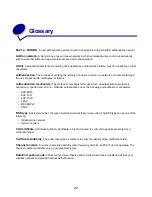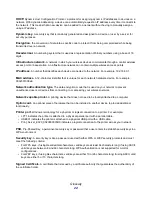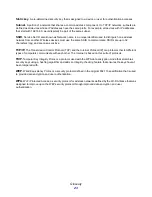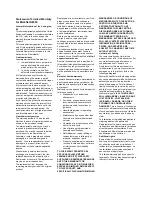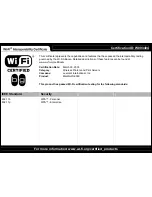
Glossary
22
DHCP.
Dynamic Host Configuration Protocol, a protocol for assigning dynamic IP addresses to devices on a
network. With dynamic addressing, a device can automatically request an IP address every time it connects to
the network. This means that a new device can be added to a network without having to manually assign a
unique IP address.
Dynamic key.
A security key that is randomly generated and assigned to a device or user by a server for
security purposes.
Encryption.
the conversion of data into a specific code to protect it from being compromised while being
transmitted over a network.
Hexadecimal.
A numbering system that is used as a representation of binary numbers using a base of 16
digits.
Infrastructure network.
A network in which your wireless devices communicate through a central wireless
access point or base station. An infrastructure network can contain multiple wireless access points.
IP address.
A number that identifies each device connected to the network. For example, 192.168.0.1.
MAC address.
A 12-character identifier that is unique for each network hardware device. For example,
0002001008e8.
Network authentication type.
The data encryption mode that is used on your network to prevent
unauthorized users or devices from connecting to or accessing your wireless network.
Network-capable printer.
A printing device that does not need to be locally attached to a computer.
Option card.
An optional piece of hardware that can be installed in another device to provide additional
functionality.
Printer port.
Windows terminology for a physical or logical connection to a printer. For example:
• LPT1 indicates the printer is attached to a physical parallel port with a parallel cable.
• USB001 indicates the printer is attached to a physical USB port with a USB cable.
• Print_Server_E320_0020000035D0 indicates a logical connection to the printer across your network.
PSK.
Pre-Shared Key, a permanent security key or password that a user enters to establish security keys in a
WPA environment.
Security key.
A security key is like a password used with either WPA or WEP security protocols and must
meet the following criteria:
• For WPA keys, if using Hexadecimal characters, valid keys are at least 64 characters long; if using ASCII,
valid keys are between 8 and 63 characters long. WPA authentication is not supported for Ad-Hoc
configurations.
• For WEP keys, if using Hex characters, valid keys are either 10 or 26 characters long; if using ASCII, valid
keys are either 5 or 13 characters long.
Signed Certificate.
A certificate that is issued by a certificate authority that guarantees the authenticity of
the certificate holder.
Summary of Contents for 14S0165 - MarkNet N8050 Print Server
Page 4: ...Contents iv Glossary 21 ...

